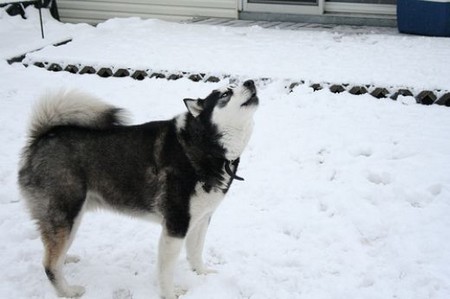Yes, dogs can be superstitious, although not in the same way that human are. Whereas a person might cross his or her fingers or wish upon a star, a dog is likely to think that one thing is inexorably attached to another. For instance, some dogs seem to think that if you tell them to sit, they’re supposed to bark, too! This is because their owners have inadvertently reinforced “bark” when they thought they were reinforcing “sit.” This isn’t a particularly difficult behavior to modify, but sometimes dogs can come up with doozies!
Most superstitious behaviors are amusing or at the most, frustrating; however, they can be more than that. For instance, let’s say your dog believes that every time you pick up your keys, he will be left alone. Because he doesn’t like being left alone, he starts vocalizing. This is a problem! What he has done is attached the sound (keys) to an action (leaving), and even though you don’t leave, he still responds as though you do.

Other superstitious behaviors might concern places. Just as a person who had a traumatic experience might associate the place it happened with the event itself, dogs can do the same. My own dog, Ariel, developed a superstitious behavior around a portion of the fire road on which we routinely walk. She was bitten by a couple of yellow jackets, and it took me some time to remove them from her rather luxuriant coat. After that incident, whenever we’d pass that part of the trail, she’d panic, spin, and bite at her coat. It took a couple of years for this behavior to disappear.
Behavior modification method
To modify superstitious behaviors, only reinforce the behavior you want to see. For instance, each time you pick up your keys, give him a treat. Then the association will be keys=treat instead of keys=alone. If you were trying to change the sit/bark scenario, you’d have to wait patiently for a sit to occur without a bark and reinforce that behavior. After a bit, you could cue the sit but only reinforce it if there was no bark attached.
Further Readings: